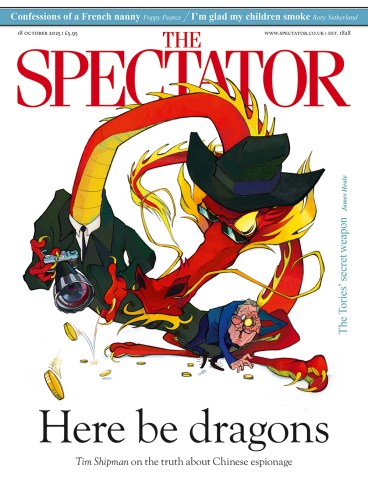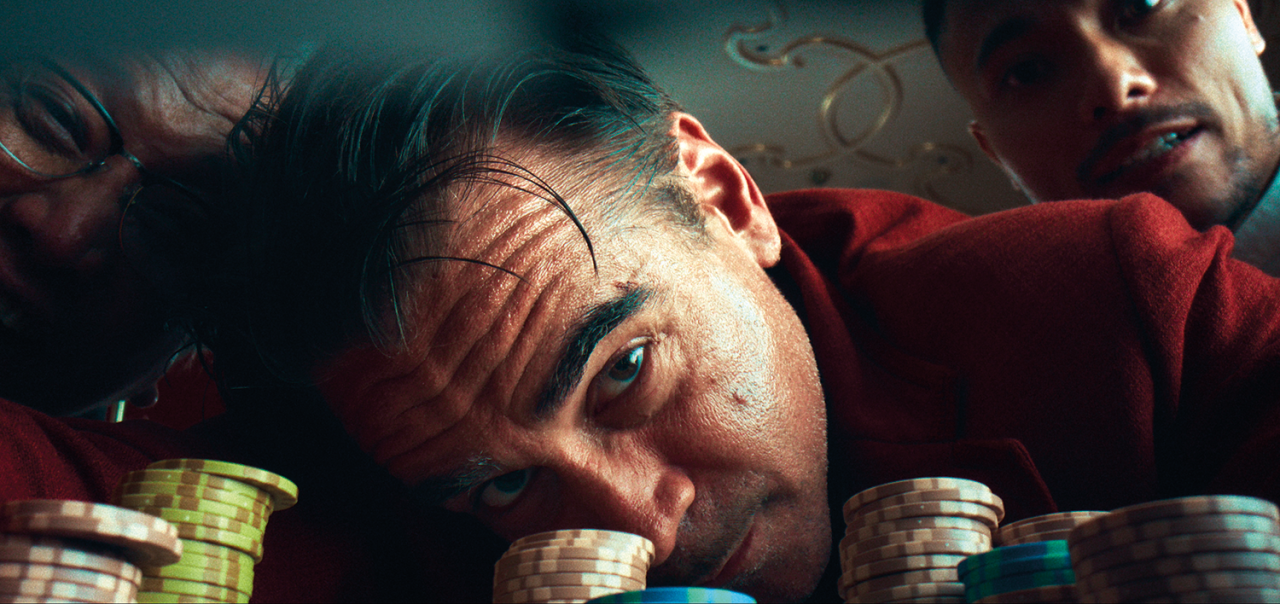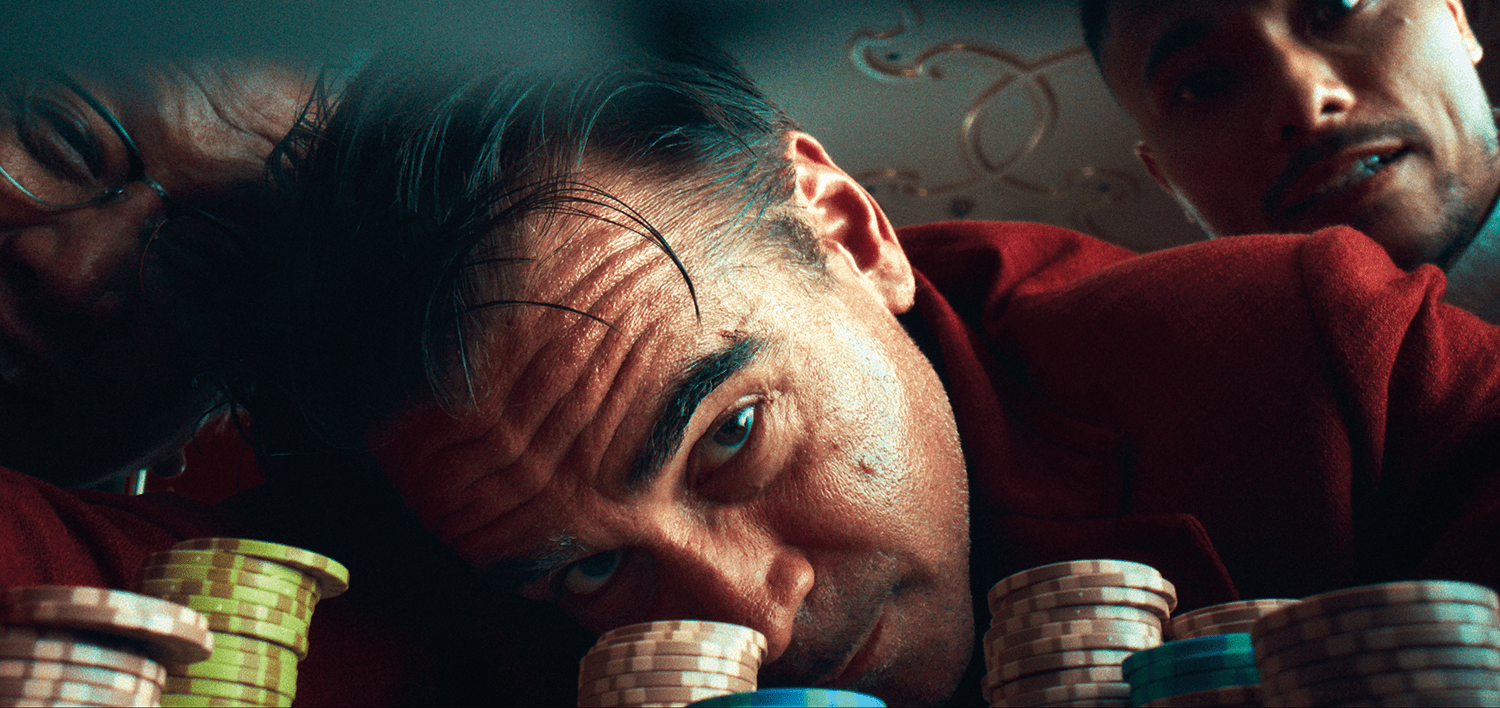
Ballad of a Small Player opens with Lord Doyle, played by Colin Farrell, hiding from security in his trashed casino suite in Macau. After they’re gone, he slips into the corridor and sees a trolley holding a bouquet of flowers and a knife. I kept my eyes on the knife, expecting the jittery, paranoid gambling addict to grab the weapon. Instead he places a white rose in his green velvet lapel.
Director Edward Berger (All Quiet on the Western Front, Conclave) enjoys playing these games of misdirection. It feels appropriate. Casinos – with their chandeliers, gaudy frescoes and croupiers in black tie – are contradictory places. Opulence in these temples of luck is both a way of hiding the brutality of emptying bank accounts, and a show of deference to the gods of fortune.
Lord Doyle has been wasting fabulous amounts of money on punto banco baccarat, a game involving only luck. But now the money’s all gone, which it transpires was never his to begin with. Doyle is in fact an Irish swindler on the lam. Viewers might expect a straightforward heist film, but for a story about gambling, no one seems motivated by money.
Really this is a film about the soul and whether it can be redeemed. While the plot dances along in Chinese costume – a procession of masks and a paper dragon appears towards the conclusion – the story is syncretic. Yes, there is the capriciousness of fate, the I Ching revealing itself through the flop of the cards. But there is the Christianity of suffering and the necessity of rejecting worldly goods.
The love interest is played by Fala Chen, a woman who provides credit to inveterate gamblers. She is not the call girl of the book and there is no clammy pathetic sex, which is probably for the best. Netflix is paying for this and they need mass appeal. Chen sometimes feels like little more than a plot device, but a perfectly pleasant one. I still found myself caring about what would happen.
Only one dead body appears, early on, and yet there is a constant threat of violence. Right at the start, we are shown a Chinese man dragged from a table by security, wailing and gnashing his teeth. At one point I had to look away as the protagonist pulled some unknown object up from the bottom of the Bay of Hong Kong. And Farrell is able to contort his sweating face into excruciating expressions as shots of him ripping apart lobsters and choking down caviar are spliced with hallucinations of him jumping from buildings or drowning in swimming pools – all symmetry and shades of neon; very pretty and pretty gruesome.
The love interest is not the call girl of the book and there is no clammy pathetic sex – which is for the best
A crucial line hangs just before the midpoint of the film. A character says to Doyle something along the lines of: did you hear the one about the gambler who dies and wakes up in a casino? He’s surrounded by beautiful women, the drinks are flowing and he’s winning every hand. The reincarnated gambler turns to the man at the table next to him and says: ‘I didn’t think heaven would be like this.’ The man replies: ‘What makes you think we’re in heaven? This is the other place.’ I only realised several days later that perhaps the ending is not quite the calamity it seems. That misdirection again.
I can’t tell you if the final twist quite works on screen. It’s a device that Lawrence Osborne, the author of the novel on which the film is based, has used more than once in his books to unsettling effect. It works so fantastically well in his books that I was willing the plot towards its conclusion. But perhaps your average punter might feel a little cheated when the final card lands. If so, bad luck. Getting what you want isn’t really the point.









Comments